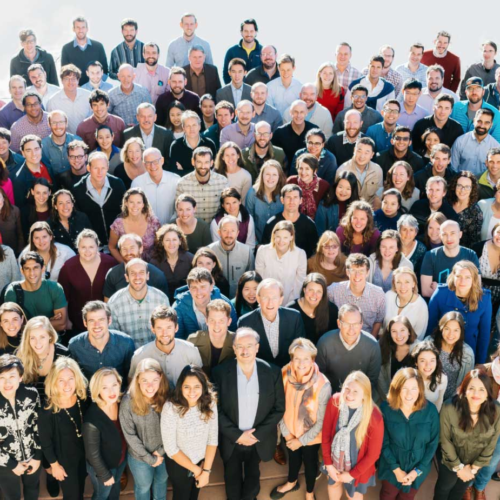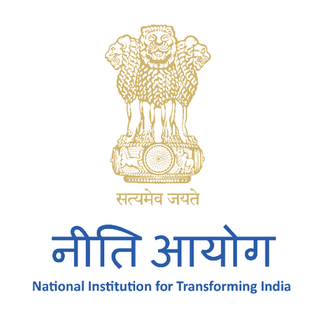
NITI Aayog and Rocky Mountain Institute Open a Grand Challenge to Select Mobility Lighthouse City
Apply to join the Grand Challenge today.
New Delhi, November 22, 2017—NITI Aayog and Rocky Mountain Institute (RMI) are opening a Grand Challenge to select a state to host India’s first mobility solutions Lighthouse City. A Lighthouse City is a living lab for conceiving, financing and testing mobility solutions that align with the Government of India’s vision for a shared, electric, and connected mobility future. The selected state will be the first host of India’s Urban Mobility Lab, a program that helps project teams generate solutions to complex mobility problems and test their solutions as pilots in a Lighthouse City. The Urban Mobility Lab will provide:
- a multi-day workshop that rapidly advances teams’ solutions with the support of expert advisors
- an ongoing platform to support financing, implementation, monitoring, and evaluation of pilots
- a methodology for integrating multiple pilots that address parts of the mobility transition into a whole system strategy in one location
- support in disseminating lessons learned to other communities in India and beyond.
The Lab will launch in early 2018 with organizational support from NITI Aayog and RMI. India’s Lighthouse Cities, and the mobility solutions that they test, will demonstrate ways to upgrade mobility services to meet the needs of rapidly growing cities while bringing operational efficiency and reducing pollution, congestion, and petroleum demand.
Opportunity and Need
India has the potential to lead the world in advanced passenger mobility using new technologies, business models, and urban design. The Government of India’s vision is a shared, electric, and connected mobility future. India can realize this vision by leapfrogging the traditional mobility paradigm of privately owned, underutilized, fossil-fuel-burning vehicles. This potential leapfrog could enhance access, reduce congestion, and improve urban air quality, while saving India 876 million metric tons of oil equivalent, worth INR 21 lakh crore, and one gigaton of CO2 emissions by 2030.
Rapidly falling technology costs and business-model innovation make it possible for India to cost-effectively shift to a new mobility system that is shared, electric, and connected. However, India must develop and test mobility solutions on the ground in order to demonstrate the viability and benefits of this new system. Testing solutions at the city and state levels will allow India to establish a blueprint for national-level adoption of these solutions. The Lighthouse Cities supported by the Urban Mobility Lab can meet this need by demonstrating whole-system approaches to mobility transformation and creating replicable models of mobility solutions.
How to Apply to Host the First Lighthouse City and Urban Mobility Lab
State government officials must submit a one-page application form explaining why their state is a strong candidate to host the first Lighthouse City within four weeks of this announcement. Applications should be submitted by relevant state government officials (for example, a state’s Director of Transportation, CEO of Economic Development Board, Ministry of Industries, or Ministries of Roads and Transport). Please see the “Urban Mobility Lab Grand Challenge Form” on page 4 for details about the application.
What is the Urban Mobility Lab?
The Urban Mobility Lab brings resources and support to advance the design, integration and implementation of projects that will test new solutions to complex mobility challenges.
- Multi-day workshop: The workshop is an event that aims to take projects from concept to implementation. It provides access to investment, resources, connections, and an environment that together advance projects to a point where they are ready to go to market. In partnership with the state government, NITI Aayog and RMI will convene multistakeholder teams working on projects that address high-priority challenges across India’s passenger-mobility system. By the end of the workshop, the teams will be ready to implement their solutions as an integrated portfolio in the Lighthouse City. The workshop will be held in early 2018.
- Platform to support implementation, monitoring, and evaluation: NITI Aayog and RMI will create a platform for supporting the implementation, monitoring, and evaluation of the teams’ pilots. Interaction and transparency among project teams will support the learning and sharing necessary to scaling these solutions across India. This platform’s rapid learning process will enable India to quickly progress from one Lighthouse City to a nation of Lighthouse Regions.
- Integrating multiple pilots: Urban Mobility Lab will provide a process for integrating multiple pilots and identifying and filling gaps to provide integrated solutions that address electric mobility for 2-, 3-, and 4-wheelers, buses, charging infrastructure, data platforms and other issues.
- Disseminating lessons learned: Urban Mobility Lab will communicate lessons learned from Lighthouse Cities through multiple media channels and direct outreach to relevant policymakers and private sector decision makers across the relevant ecosystem of stakeholders.
Participation from local and central government, private-sector actors, and private and multilateral financial institutions will support the financing and implementation of the projects. Senior leaders from the public and private sectors have already committed to participate in the Urban Mobility Lab.
Step-by-Step Process for Establishing the Lighthouse City and Urban Mobility Lab
1. Host city selection: The first step is selecting the Lighthouse City, which will host the Urban Mobility Lab in early 2018. Key selection criteria include strong local government support, demonstrated progress on shared and electric mobility, and ongoing plans for smart urban development. The selected city should have a population greater than 1 million and a population density that warrants diverse modes of transportation. An advisory board from NITI Aayog and RMI will select the host state by drawing on these criteria.
2. Recruitment of teams: Once the host state and the Lighthouse City have been identified, the state government, NITI Aayog, and RMI will recruit four to six mission-driven teams, working on economically viable projects that address high-priority challenges in India’s passenger-mobility system, to participate in the workshop. These teams will have projects with high scaling potential, leveraging shared infrastructure and investments. Strong interest already exists from teams working on swappable batteries for electric scooters and rickshaws; fast chargers for electric vehicle fleets; high-mileage electric service vehicles for commuter routes; and data platforms for integrated planning, booking, and payment of multimodal trips.
3. Development of a common knowledge base: for project teams. NITI Aayog and RMI will co-author a set of research papers on key mobility topics to establish a knowledge base.
4. Workshop for pilot design and implementation: Facilitators and technical experts will provide customized content, training, and feedback for each team’s unique project before, during, and after the event. The workshop will provide participants with structured working sessions to make progress on project design, tools and training to overcome technical barriers, access to private and multilateral investment capital, and a unique environment conducive to creativity and breakthrough ideas.
5. Implementation support and progress monitoring: As demonstration projects deploy,
NITI Aayog and RMI will track each team’s progress and publish relevant insights. The teams will learn from new iterations and use this feedback to improve the solutions in order to increase their effectiveness as they scale nationally.
Contacts
For more information, please contact:
Shikha Juyal, NITI Aayog, shikha.juyal@nic.in
Clay Stranger, Rocky Mountain Institute, cstranger@rmi.org

About Rocky Mountain Institute
Rocky Mountain Institute (RMI)—an independent nonprofit founded in 1982—transforms global energy use to create a clean, prosperous, and secure low-carbon future. It engages businesses, communities, institutions, and entrepreneurs to accelerate the adoption of market-based solutions that cost-effectively shift from fossil fuels to efficiency and renewables. RMI has offices in Basalt and Boulder, Colorado; New York City; Washington, D.C.; and Beijing.

About NITI Aayog
The National Institution for Transforming India, also called NITI Aayog, was formed via a resolution of the Union Cabinet on January 1, 2015. NITI Aayog is the premier policy ‘Think Tank’ of the Government of India, providing both directional and policy inputs. While designing strategic and long term policies and programmes for the Government of India, NITI Aayog also provides relevant technical advice to the Centre and States.